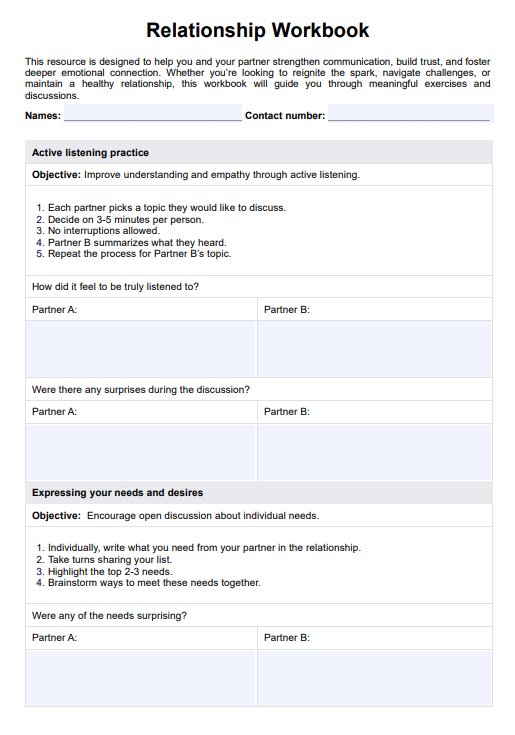An unhealthy relationship often involves behavior patterns that harm one or both partners. Signs include lack of communication, disrespect, control issues, and neglect of each other's needs. Feelings of unhappiness, insecurity, or fear within the relationship indicate that it may be unhealthy.

Relationship Workbook
Strengthen your relationship with our workbook, offering exercises for better communication, intimacy, and conflict resolution.
Relationship Workbook Template
Commonly asked questions
The terms are frequently used interchangeably, but there can be subtle differences in practice. Couples therapy often deals with deeper, long-standing issues within a relationship, focusing on resolving past conflicts and improving overall relationship dynamics. Couples counseling, however, may focus more on addressing specific challenges or decision-making processes for struggling couples and is often more short-term.
Patients might need couples therapy or counseling if they experience persistent conflict, communication breakdowns, dissatisfaction, or feel stuck in negative patterns that they're unable to break on their own. Indications include frequent arguments, emotional distance, trust issues, or significant life changes impacting the relationship. A professional can help determine the most appropriate approach based on the couple or family's needs and goals and improve communication skills.
EHR and practice management software
Get started for free
*No credit card required
Free
$0/usd
Unlimited clients
Telehealth
1GB of storage
Client portal text
Automated billing and online payments











